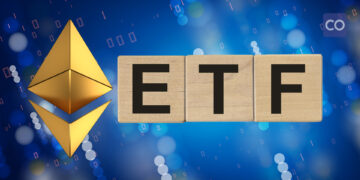- Ethereum’s EIP-7702 could change account abstraction, proposed by Vitalik Buterin.
- EIP-7702 praised for ease of integration, backward compatibility with EOAs.
- Community optimistic about EIP-7702’s potential impact on decentralized finance.
Discussions within the Ethereum community often become heated when considering new Ethereum Improvement Proposals (EIPs). EIP-7702 is currently a focal point, as it could significantly alter the concept of account abstraction.
This proposal, put forth by Ethereum’s co-founder Vitalik Buterin and his team, offers a novel method to overcome the issues encountered with earlier proposals like EIP-3074. The key feature of EIP-7702 is its provision for Externally Owned Accounts (EOAs) – the standard Ethereum addresses – to adopt the capabilities of smart contract wallets for the duration of a transaction before reverting to their initial state.
The reaction to EIP-7702 from the Ethereum community has been overwhelmingly positive. In contrast to the complications of previous proposals such as EIP-3074, which demanded extensive modifications to the Ethereum Virtual Machine (EVM) and the establishment of new infrastructure, EIP-7702 is seen as a welcome and less burdensome alternative.
The Ethereum community is enthusiastic about EIP-7702’s backward compatibility feature, commending its ability to remove the necessity for additional opcodes and the supporting framework for an ‘invoker contract.’ Many share this perspective, as it streamlines the incorporation of smart contract features into Externally Owned Accounts (EOAs).
What Sets EIP-7702 Apart?
Additionally, the proposal’s contribution to promoting harmony among community members is clear. Mentions of previous proposals, such as EIP-4337 and EIP-5003, which tackled related issues but did not fully succeed, highlight the importance of the introduction of EIP-7702. Its capacity to close the divide among various groups within the account abstraction community indicates a move toward unity and cooperative effort.
Nonetheless, as with any major modification, EIP-7702 has its own set of factors to consider. The inclusion of contract code within transaction processing has advantages and potential issues. While it facilitates the on-chain verification of signatures via protocols like ERC-1271, it also introduces questions regarding compatibility with decentralized applications that differentiate against contracts.
In conclusion, as the proposal continues to attract both endorsement and critical examination, the community is optimistic about its potential to significantly impact decentralized finance and other applications on the Ethereum network.
Disclaimer: The insights, perspectives, and data presented in this price analysis are published in good faith. Readers must conduct their own research due diligence. Any decision made by the reader is solely their responsibility, and Crypto Outlooks shall not be held responsible for any consequential or incidental harm or loss.






